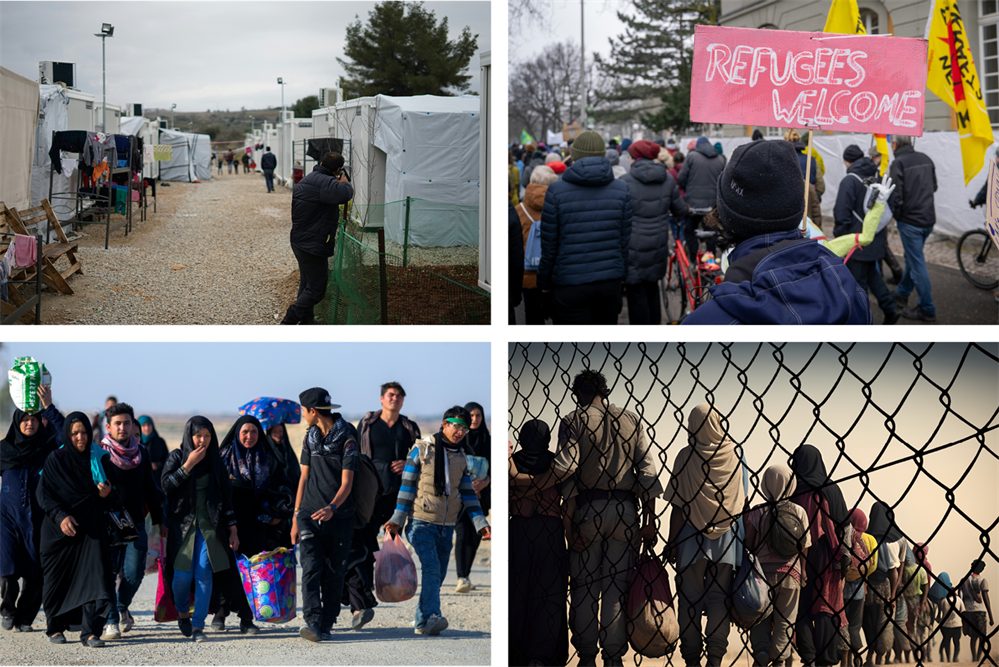The Anglican Communion Office (ACO) supports Anglicans to advocate for reconciliation, peace and action, seeking to extend the Kingdom of God on earth. As part of this, the ACO advocates for Refugees in international forums such as the United Nations.
The Anglican Communion Office (ACO) supports Anglicans to advocate for reconciliation, peace and action, seeking to extend the Kingdom of God on earth.
UNHCR reports:
The UN Refugee Agency has never had to handle conditions as bad as this. There are crises happening across the world, including Afghanistan, the Democratic Republic of the Congo, Latin America and the Caribbean nations, Gaza, Myanmar, Somalia, Sudan and Ukraine.

In responding to the Refugee Crisis, it’s vital that people work together to protect people, aid those seeking asylum, promote stability, and address the root causes of displacement.
The Anglican Communion advocates in international fora for governments to:
So often, Anglican communities are the ones being forced to flee, or who are on the receiving end of refugee movements. As such, our sisters and brothers in Christ are hugely impacted by these issues. Anglicans can advocate for change.
Read more about what Anglicans are doing around the world to respond to migration crisis.

Read Genesis 37-50: Joseph, a descendant of Abraham, was sold by his brothers into slavery. Yet God helped him rise to a position of power in Egypt, his adopted home. Meanwhile, famine struck the homeland of Joseph’s brothers, and they had to migrate to Egypt to seek food. They found mercy, a new home – and a lost brother – when they arrived in Egypt.
Read Genesis 12:33-42: Migration via the Exodus was a mixed bag: on the one hand, freedom was offered from the violence of Egypt, and escape from the economic collapse of Egyptian society resulting from the plagues. On the other hand, a world of uncertainty awaited them in the deserts of Sinai.
Read Ruth 1-4: Ruth, a foreigner, became a migrant out of loyalty to her mother-in-law. Reflect on the legal structures that meant she could work and find food; and the societal arrangements that meant she could be integrated and married. Reflect on her subsequent place in the line of King David.
Read Matthew 2:13-23: The holy family had their own experience of refugee life, fleeing to Egypt to escape their own king, the wicked Herod. The irony is that, in the book of Exodus, Egypt was the place of oppression; but now, it is the place of safety. Herod has become the new despotic pharaoh.
Almighty and merciful God,
whose Son became a refugee and had no place to call his own;
look with mercy on those who today are fleeing from danger,
homeless and hungry.
Bless those who work to bring them relief;
inspire generosity and compassion in all our hearts;
and guide the nations of the world towards that day when all will rejoice in your Kingdom of justice and of peace;
through Jesus Christ our Lord.
Amen.
(Source: The Church of England)